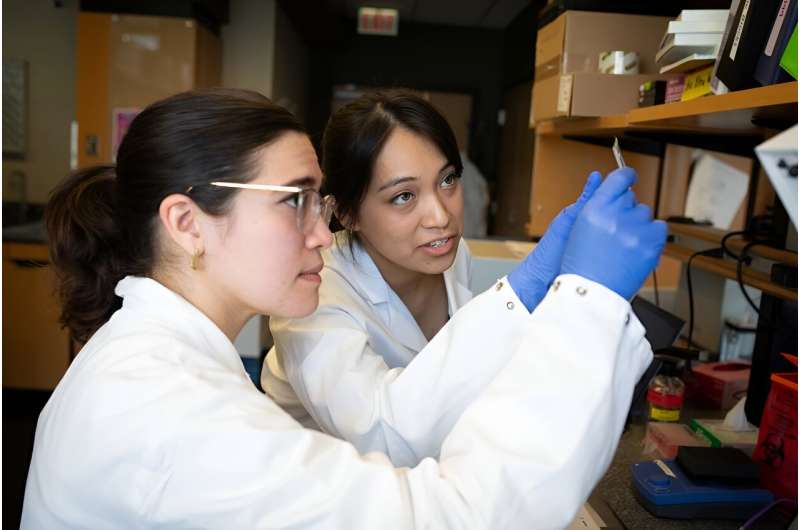The surge in RSV cases following the COVID-19 pandemic may have been, in part, caused by increased testing and changes to the RSV genome, according to a Northwestern Medicine study published in Nature Communications.
Respiratory syncytial virus, or RSV, is a common virus that usually causes mild, cold-like symptoms, according to the Centers for Disease Control and Prevention.
“It’s actually a really common cause of respiratory tract infections in the United States and has particularly high disease burden in young kids, older adults and the immunocompromised,” said Judd Hultquist, Ph.D., assistant professor of Medicine in the Division of Infectious Diseases and senior author of the study. “Most children, by the time they’re age 2, have already had it and it’s a virus that we’re continually infected with over the course of our lives.”
In the study, Hultquist and his collaborators sought to understand how the COVID-19 pandemic impacted RSV spread. RSV cases plummeted in 2020 when public health measures meant to stop the spread of COVID-19 were put into place, including masking, remote learning and social distancing. Lowered population immunity to RSV was thought to be a major factor that resulted in the surge of RSV cases in 2021 after these measures were dropped, Hultquist said.
“When we were doing these social mitigation measures to prevent COVID-19, RSV almost disappeared,” Hultquist said. “We were not getting any cases of it in the hospital, and very few cases were being reported to the public health department. But then, of course, once we started removing our masks and kids went back to school, RSV came back with a vengeance. We had really high case counts and we were seeing cases at times of the year when we typically don’t.”
However, RSV cases have remained relatively high ever since, especially in adults. To better understand why, investigators analyzed hospital data on RSV infections from 2009 to 2023 in Chicago and found that while the number of severe infections remained in line with historical averages, detection rates for less severe cases rose dramatically following a change in testing patterns.
Prior to the pandemic, people were not routinely tested for RSV unless they had extreme cases, Hultquist said.
“During the pandemic, we developed new, relatively cheap diagnostic tests where people could test for RSV, flu and COVID all at once,” Hultquist said. “This resulted in more people getting tested for RSV even if they weren’t severely ill and we started catching these infections that otherwise would have been missed. We think that some of the increases in cases, especially in our adult populations, is just because we were changing how we were diagnosing the virus, not necessarily because there was more around.”

These findings highlight how human behavior and changes in the health system can drive changes in how we think about different diseases, Hultquist said.
The RSV virus also exhibited genetic alterations during this time, according to the study. Hospitalized adults infected with RSV subtype A (RSV-A) were at higher risk of intensive care admission than those with RSV subtype B (RSV-B). RSV-B, in particular, acquired a number of new mutations over the course of the COVID-19 pandemic that could influence its ability to spread or be neutralized by antibodies. These changes could have implications for future vaccine and therapeutic development, according to the study.
Moving forward, Hultquist and his laboratory will continue to study how these genetic mutations have impacted RSV and how the COVID-19 pandemic might have affected other viruses, he said.
“The first thing that we want to do is explore how these mutations are impacting the biology of the virus,” he said. “Does it change how the virus enters a cell? Does it change our body’s ability to fight the virus? But most importantly, does it change the impact of these therapeutics in preventing the virus from spreading? All of these are questions we can now go back to in the lab and begin to explore.”
More information:
Estefany Rios-Guzman et al, Deviations in RSV epidemiological patterns and population structures in the United States following the COVID-19 pandemic, Nature Communications (2024). DOI: 10.1038/s41467-024-47757-9
Citation:
Study examines surge in RSV cases after the COVID-19 pandemic (2024, May 30)
retrieved 30 May 2024
from https://medicalxpress.com/news/2024-05-surge-rsv-cases-covid-pandemic.html
This document is subject to copyright. Apart from any fair dealing for the purpose of private study or research, no
part may be reproduced without the written permission. The content is provided for information purposes only.

